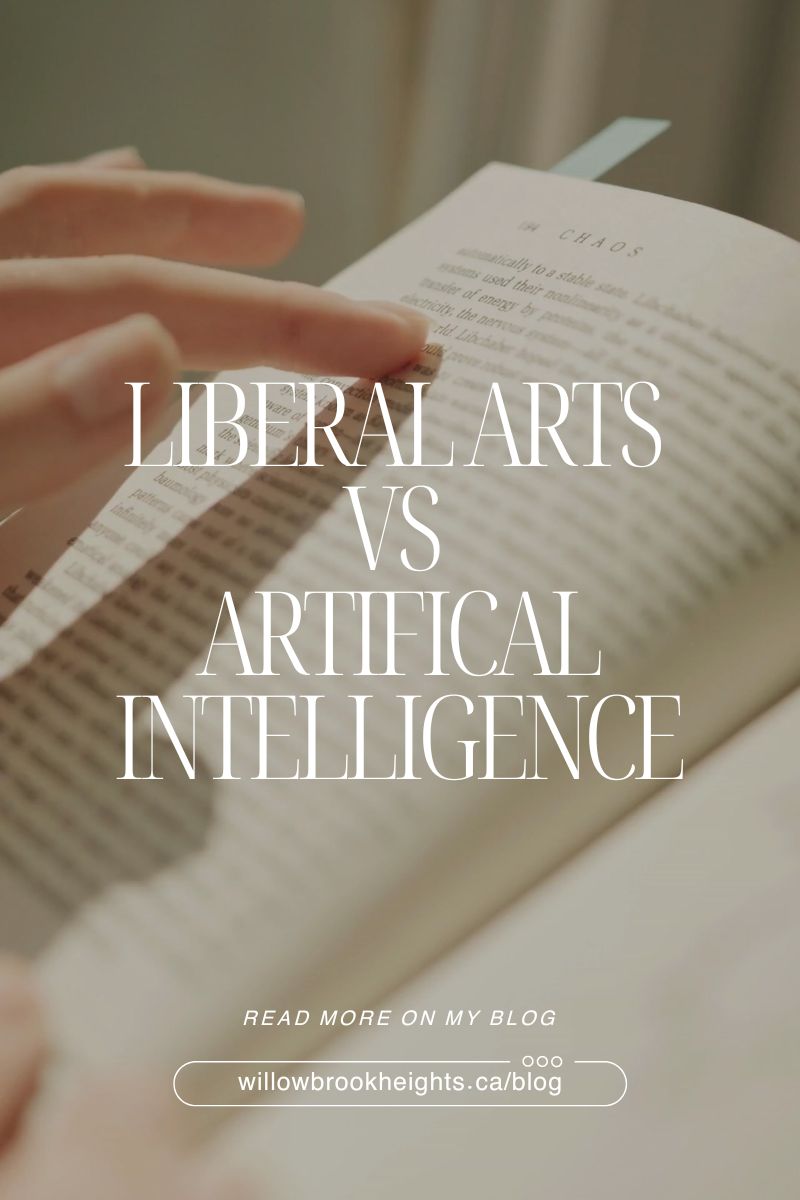
I personally think there’s going to be a greater demand in 10 years for liberal arts majors than there were for programming majors and maybe even engineering, because when the data is all being spit out for you, options are being spit out for you, you need a different perspective in order to have a different view of the data. [You need] someone who is more of a freer thinker.
Marc Cuban
Shark Tank Host
Given AI is more objective, analytical, data driven, maybe it’s time for some of us to switch to the humanities, liberal arts, and beauty.
Kai-Fu Lee
Former Google and Microsoft executive

Noteworthy Quotes
Key Take Aways from the article entitled: The most forward-thinking, future proof college in America teaches every student the exact same stuff.
A liberal arts, classical education at St. John’s College.
A recent Pew Research Center survey of 1,408 technology and education professionals suggested that the most valuable skills in the future will be those that machines can’t yet easily replicate, like creativity, critical thinking, emotional intelligence, adaptability and collaboration. In short, people need to learn how to learn, because the only hedge against a fast-changing world is the ability to think, adapt and collaborate well.
Few bachelor’s programs require sufficient amounts of the reading, writing, and discourse needed to develop critical thinking skills.
This curriculum is carefully designed not only to build knowledge, but also to understand how knowledge is ultimately created; it is teaching students how to learn.
St. John’s students de facto major in epistemology. epistemology is the philosophy of knowledge, or the investigation of what distinguishes substantiated and supportable belief from mere opinion. Now that sounds like it could come in handy these days.
What could be more valuable than developing an intellectual filter, cultivating the capacity to know what is important to know, distilling enormous amounts of information to form a rational position, or knowing how to listen and respond to—or perhaps integrate—someone else’s point of view?
The college focuses on the intellectual growth of students while they attend, not necessarily on what comes after graduation. Although there is little vocational discussion and modest career guidance at the school, Johnnies seem to do just fine after graduation. About two-thirds eventually go on for further degrees—including law school (a favorite), master’s and doctoral programs (the school produces more students who go on to earn PhDs per capita than almost any other US college), and some to medical and business schools.
The creative and critical thinking that develops in the St. John’s bubble may be just what the future will require. While most college students have been rushing to study computer science and other technical skills for better employment outcomes, these fields may be less lucrative over time with machine learning and artificial intelligence.
It trains your mind and frees it at the same time. This allows you to truly follow your own passions and interest in life without the subconscious impositions and prodding of our wired world.
Additional Testimonials for a Liberal Arts Education

Technologies alone are not enough - it is the technology married with the humanities that yields the results that make our heart sing.
Steve Jobs

Liberal Arts education equips us conscious and instills upon us to be aware enough to choose what we pay attention to and how to construct meaning from experience.
David Foster Wallace

A liberal education is an education for freedom. An education that allows one to speak and think for oneself and not be constrained by prevailing wisdom, fad or fashion. To be truly free and think for oneself.
Mike Peters

A liberal education provides an opportunity to have awareness and see gaps in opportunities so we may open new markets, and create value, jobs, wealth and prosperity.
Ari Matusiak



